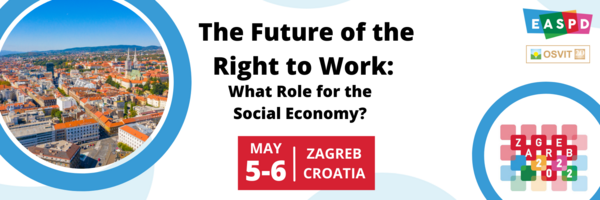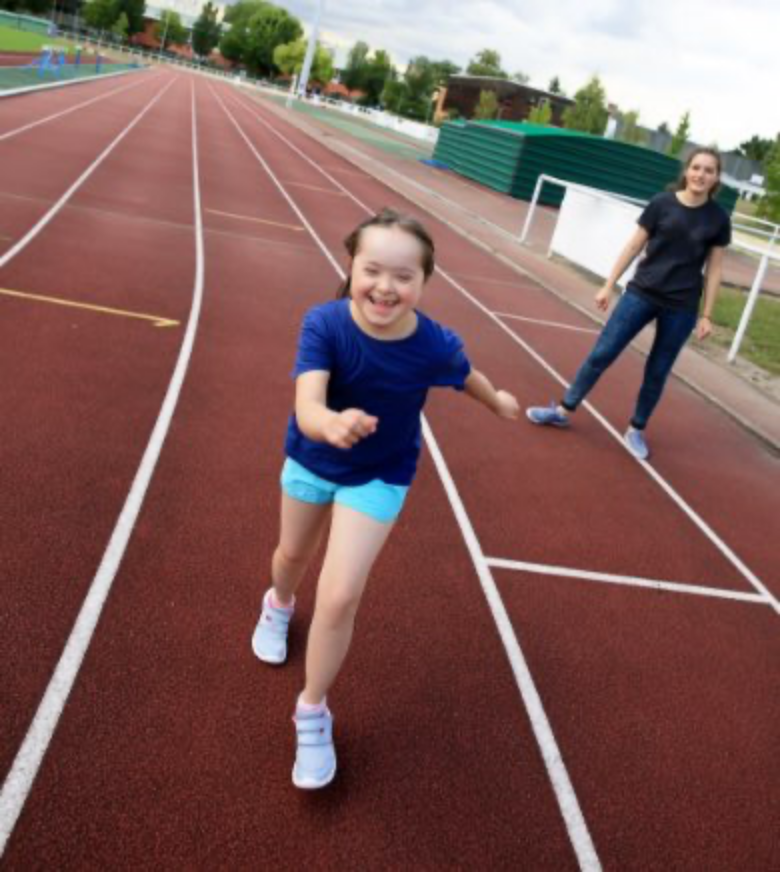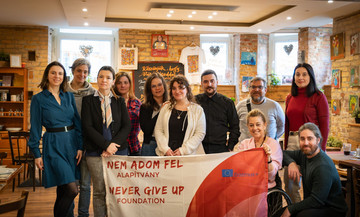all across Europe
European Association of Service providers for Persons with Disabilities
1
EASPD is the European Association of Service providers for Persons with Disabilities and represents over 20,000 support services for persons with disabilities across Europe.
2
We promote equal opportunities for people with disabilities through effective and high-quality service systems.

Key areas of work
When done right, quality care and support enables people to live independently, in the community, to make choices, and to have control over their lives.
James Crowe, EASPD President
Come to Zagreb this May as we gather to discuss the future of the right to work for people with disabilities!

The social economy can be a beacon of opportunities for people with disabilities by employing, training or supporting millions of persons with disabilities to get jobs across Europe. COVID19 evolved the way we live and more importantly, the way we work. Understanding and discussing how these changes can provide opportunities and pose threats to inclusion of people with disabilities is essential.
We gather together in Zagreb on 5-6 May to discuss what the future holds for people with disabilities by exploring their right to work and the vast opportunities the social economy can provide.
‘The future of the right to work: what role for the social economy’ international conference, hosted by EASPD and OSVIT, has opened registrations and more information about the event can be found here.
The conference will have speakers dive into key areas of discussion where the social economy can help in creating a more inclusive job market for persons with disabilities. Further we will discuss:
- Concrete examples of success stories of how the Social Economy can help persons with disabilities to enjoy the right to work and employment on an equal basis to others.
- Refine what a quality job is for persons with disabilities and what this means for the Social Economy.
- Identify what skills are needed to create job opportunities in the future
- Explore how the future of work will impact the Social Economy (and vice versa).
- Discuss if and how the Social Economy can contribute more to the implementation of Article 27 of the UN Convention on the Rights of Persons with Disabilities.
- Learn more about the actions the European Union is taking to boost labour market outcomes for persons with disabilities, including through the Social Economy Action Plan.
Calendar
Come to Zagreb this May as we gather to discuss the future of the right to work for people with disabilities!

The social economy can be a beacon of opportunities for people with disabilities by employing, training or supporting millions of persons with disabilities to get jobs across Europe. COVID19 evolved the way we live and more importantly, the way we work. Understanding and discussing how these changes can provide opportunities and pose threats to inclusion of people with disabilities is essential.
We gather together in Zagreb on 5-6 May to discuss what the future holds for people with disabilities by exploring their right to work and the vast opportunities the social economy can provide.
‘The future of the right to work: what role for the social economy’ international conference, hosted by EASPD and OSVIT, has opened registrations and more information about the event can be found here.
The conference will have speakers dive into key areas of discussion where the social economy can help in creating a more inclusive job market for persons with disabilities. Further we will discuss:
- Concrete examples of success stories of how the Social Economy can help persons with disabilities to enjoy the right to work and employment on an equal basis to others.
- Refine what a quality job is for persons with disabilities and what this means for the Social Economy.
- Identify what skills are needed to create job opportunities in the future
- Explore how the future of work will impact the Social Economy (and vice versa).
- Discuss if and how the Social Economy can contribute more to the implementation of Article 27 of the UN Convention on the Rights of Persons with Disabilities.
- Learn more about the actions the European Union is taking to boost labour market outcomes for persons with disabilities, including through the Social Economy Action Plan.
















